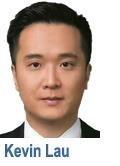This year marks the 10th anniversary of the Belt and Road Initiative (BRI). The third Belt and Road Forum for International Cooperation was held in Beijing on Tuesday and Wednesday under the theme “High-quality Belt and Road Cooperation: Together for Common Development and Prosperity”, and attracted leaders and representatives from some 130 countries and regions.
Hong Kong’s involvement in the initiative is of great significance to the city’s future economic development. Of equal importance, the economic and trade ties between China and countries involved in the Belt and Road route are becoming increasingly close. There is growing demand for the use of the renminbi (RMB) in bilateral trade, investment and reserves. Hong Kong is currently the premier offshore RMB business center globally. We can consolidate Hong Kong’s position as an international financial center by further developing offshore RMB financial products and stimulating the demand for issuing and trading RMB securities in Hong Kong.

Those familiar with the Hong Kong stock market know that the daily trading volume has recently suffered a significant decline. In June, the average daily turnover was less than HK$100 billion ($12.7 billion), signaling a stagnant market. Hong Kong takes pride in being an international financial center, and the financial services industry is an important pillar of its economy. If we allow the trading activity of the stock market to continue to decline, there is a risk that Hong Kong’s economy as a whole will shrink.
Because people prefer to work during the daytime in their respective time zones, and the average person works eight hours a day, the world — with its 24 time zones — actually only needs three to five international financial centers to meet the financial services needs during those eight hours. Currently, New York, London and Hong Kong are recognized as international financial centers, but there is a significant gap between when the New York market closes and the London market opens. Hong Kong, which is eight hours ahead of London, fills this gap perfectly. However, having just one international financial center to fill this gap is generally sufficient. Therefore, if Hong Kong were to lose out to another city on roughly the same time zone, it would be challenging to regain its status as an international financial center.
Hong Kong’s proximity to the Chinese mainland — a vast and rapidly developing economy — is a significant advantage. Therefore, we must continue to actively participate in the development of the BRI
Many cities are competing to become international financial centers because being able to do so would bring numerous benefits. The most important and profitable transactions take place in international financial centers, top bankers and traders work in them, and financial activities attract auxiliary players such as lawyers, accountants, actuaries, and specialized insurance companies, which establish their headquarters there.
Industries and job opportunities related to satisfying the daily needs of highly-paid professionals — such as in the provision of food, clothing, housing, and entertainment — would inevitably emerge there. The economic benefits resulting from being an international financial center are countless, but they are not the only advantage. The influx of top financial professionals also helps significantly enhance the “soft power” of an international financial center. This includes not only the status of being an international financial center, but also incalculable benefits in areas beyond the financial economy for the city and its residents.
Since the status of Hong Kong as an international financial center is not to be taken lightly, we must make efforts to maintain and consolidate its current position. Hong Kong’s proximity to the Chinese mainland — a vast and rapidly developing economy — is a significant advantage. Therefore, we must continue to actively participate in the development of the BRI.
The author is a specialist in radiology, Master of Public Health of the University of Hong Kong, and an adviser of Our Hong Kong Foundation.
The views do not necessarily reflect those of China Daily.


